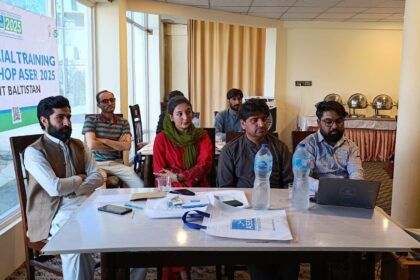Online Fraud — Beware: How to Protect Yourself and the Law to Help You
By: Zaheer Ahmad Awan
Modern technology brings many conveniences, but it has also introduced new forms of
deception and fraud. Mobile phones, the internet and social media platforms such as
Facebook, X (Twitter), WhatsApp, Instagram and others are now widely used to trick
ordinary people. Scammers, both local and international, exploit these platforms, hack
accounts, impersonate others, and defraud victims of their savings.In Pakistan many reports describe hacked social accounts, fake profiles used to blackmail
people, romance scams, bogus investment schemes and cryptocurrency frauds that have
cost victims large sums. The Federal Investigation Agency (FIA) Cyber Crime Wing
investigates such complaints and maintains an online reporting portal and helpline for victims.Typical methods scammers use include fake profiles that gain trust and demand money,calls impersonating banks or agencies, fraudulent investment offers, and hacking of social
media accounts to extract money.Pakistan’s principal law addressing online crimes is the Prevention of Electronic Crimes
Act (PECA), 2016. PECA criminalizes unauthorized access, hacking, misuse of data, and
online extortion. Victims should report to FIA Cyber Crime Wing (helpline: 1991,portal:nr3c.gov.pk).Internationally, laws such as the European Union’s GDPR and U.S. FTC regulations
protect users’ data and provide remedies for online fraud. INTERPOL also coordinates
global operations to combat cybercrime.To protect yourself: never share OTPs, avoid unknown links, enable two-factor
authentication, limit personal data online, and verify all requests for money. Keep software
updated and save evidence if you are targeted.
If you become a victim, block the scammer, preserve evidence, contact your bank, and file
a complaint with the FIA immediately.Early reporting can help recover losses and prevent
further harm.Online fraud is not merely a technical problem — it is a social and legal threat that affects
families and livelihoods. Every citizen must adopt digital hygiene, authorities must expand
awareness campaigns, and platforms must strengthen user protection.











